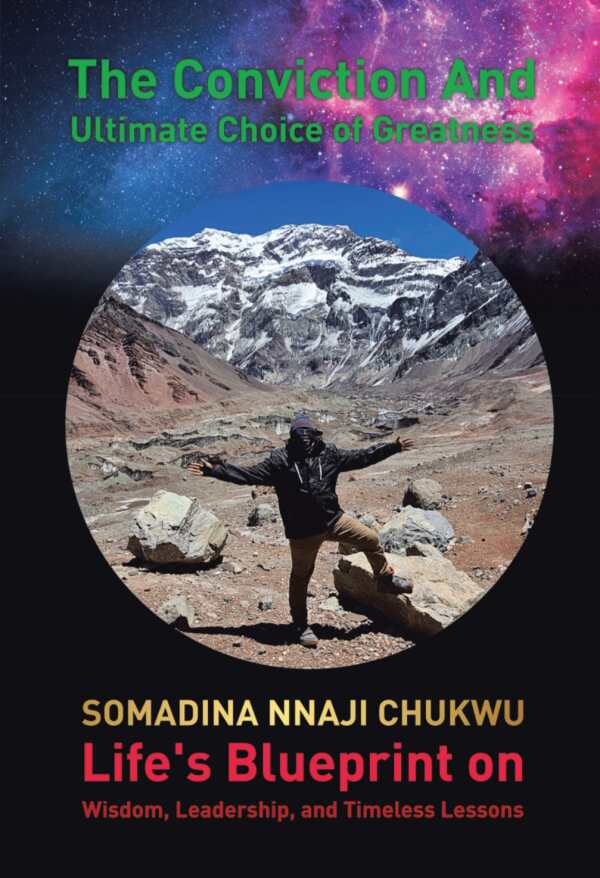The Conviction and Ultimate Choice of Greatness
Life's Blueprint on Wisdom, Leadership, and Timeless Lessons
Positive choices are the reigning mode of transport through the musings of the self-help text The Conviction and Ultimate Choice of Greatness.
Somadina Nnaji Chukwu’s inspirational essay collection The Conviction and Ultimate Choice of Greatness reflects on the role of personal agency in the pursuit of success, using personal experiences as a framework for its teachings.
Existentialism undergirds the book’s nine pseudochapters, whose inquiries often turn philosophical, delving into abstract concepts about life. Indeed, the posing of rhetorical questions about life’s intangible entanglements regarding freedom, purpose, and legacy is a reoccurring motif throughout. Still, the insights slant toward the practical application of information, centering concrete principles like hard work, perseverance, critical thinking, and humility as ways to eschew life’s dangerous pitfalls, which include limiting beliefs and “idle hope.”
On the page, the text appears like poetry, but the writing style is better described as essays in verse. Utilizing a conversational tone, their fervor imbues the text with a sermonic edge that oscillates between didactic and confessional. For instance, “Bad Friends, Farewell” breaks from addressing the general collective to address one person in particular: “Yes, it’s saddening to acknowledge that our paths have diverged.” These moments of intimacy, however brief, result in simultaneous candor and an artistic sensibility that endows the repetition of themes with momentum.
The book’s structure, however, fails to support its creative maneuvers. Indeed, inconsistencies supplant meaning with disorientation. At times, this is caused by a lack of consideration for conventions in style and formatting; at other times, as with the gallery of photographs that separates books seven and eight, the book’s intentions are obscured or unspoken. In contrast, the succinct chapter titles are useful, offering clear indications as to the tone and scope of the subsequent verse while demarcating the book’s distinct form-as-inquiry approach.
In keeping with the book’s philosophical undertones, the titles represent specific items of import, whether a significant relationship, human construct, or existential paradox that’s inextricable from daily life and thus worthy of deeper rumination. In “Diligent Hard Work,” for example, the lines “Hope is feeble where work is shy / And responsibility is lacking” function as a poem-cum-parable. Other entries employ a list-like cadence. In this way, the text has a musicality that adds pizzazz to its potpourri of life lessons, positive affirmations, preaching metaphors, self-reflective syntheses, and actionable advice.
Replete with prompts toward deeper inquiry and self-reflection, The Conviction and Ultimate Choice of Greatness is a philosophical self-help text.
Reviewed by
Xenia Dunford
Disclosure: This article is not an endorsement, but a review. The publisher of this book provided free copies of the book and paid a small fee to have their book reviewed by a professional reviewer. Foreword Reviews and Clarion Reviews make no guarantee that the publisher will receive a positive review. Foreword Magazine, Inc. is disclosing this in accordance with the Federal Trade Commission’s 16 CFR, Part 255.

